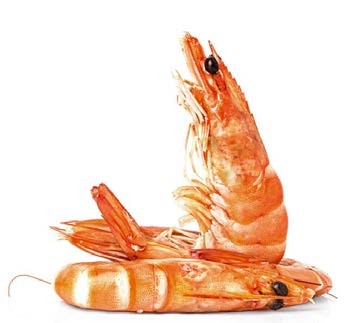A Matter of Taste... and Global Warming

By Merry Morris
Whether your favorite shrimp dish is Shrimp Scampi, Szechwan Shrimp or Shrimp and Grits, you could be sadly disappointed with these delicacies in the future…due to global warming.
It's More than Life or Death
The seafood industry in the United States is an economic engine that provides communities with jobs, populations with a low-fat, calorie-light protein and shrimp lovers with their favorite source of omega-3s. In a warming climate, we know that the sizes of fish and shellfish populations are at risk due to higher mortality. What has not been investigated thoroughly is that the very taste of these “fruits of the sea” is likely to be noticeably degraded. According to researchers from Sweden, the United Kingdom and Canada, a reduction in sensory quality, not just survival, is critical when considering impacts of global warming.
Ocean Acidification
For many years, it has been to our benefit that the oceans have absorbed manmade carbon dioxide, blunting its impact on terrestrial systems. Over roughly 200 years, around 50 percent of the billions of tons of emissions have been absorbed and transformed into carbonic acid. Now the acidity of the oceans has begun to increase as carbonic acid concentrations have risen in surface waters. A reduction of 0.1 pH units represents an unsettling 25-percent increase in acidity.
Taste Test
These researchers investigated changes in the taste of northern shrimp by raising the crustaceans in a more acidic environment than normal. Their two study treatments featured water at pH levels 7.5 and 8.0. As expected, more shrimp died in the lower pH water, but those that survived were not unscathed. Shrimp from both pH treatments were harvested, used by chefs as ingredients in shrimp dishes and subjectively judged by a panel of 30 “local connoisseurs.”
When the culinary verdict was in, the judges were 3.4 times more likely to consider the pH 8-raised shrimp to be tastiest, while their more acidic, pH 7-raised counterparts were much more likely to be deemed the least desirable.
In the Old Days
As ocean acidification continues, we may find that our seafood (and more) “just doesn’t taste as good as it used to.” Our maturing taste buds aside, now we know one reason why that might be.
Extension Questions
- What is the effect of pH on living populations?
- pH units are logarithmic, so a change of 0.5 units is bigger than it first seems. Investigate ocean water pH from a variety of locations (temperate, tropical, arctic). What are the normal variations and what might suggest acidification?